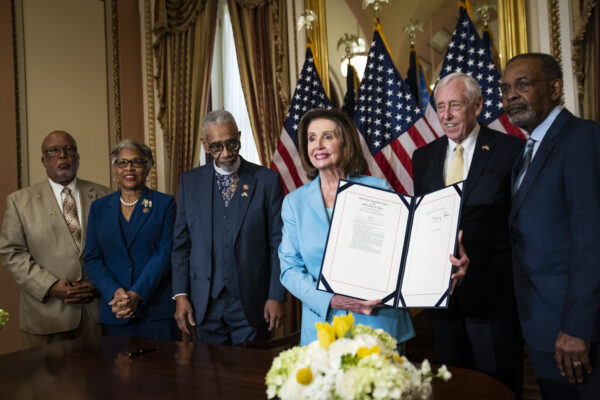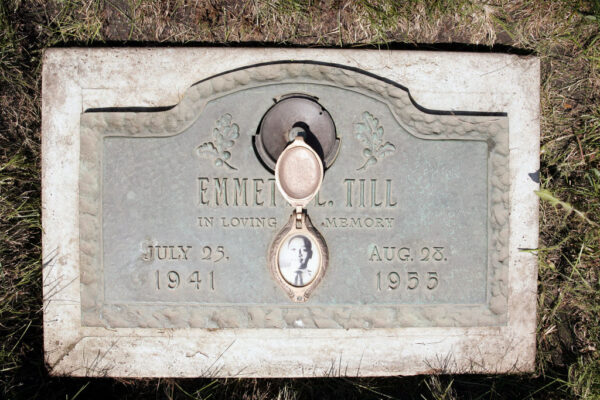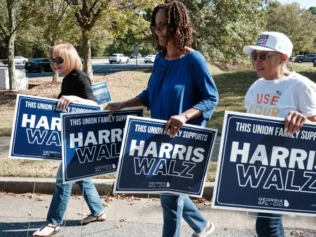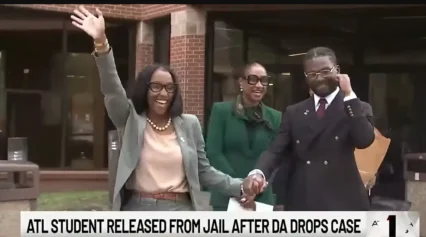While Black sociologists and historians applaud a new federal law that declares lynching a federal hate crime for its symbolism, they say more intentional reforms are needed.
President Joe Biden signed the measure, dubbed the Emmett Till Anti-Lynching Act, on March 29. It requires a maximum sentence of 30 years in prison and fines for anyone conspiring to commit an act of lynching that causes death or injury.

Kellie Carter Jackson, an Africana studies professor at Wellesley College, said she feels “indifferent” about the law.
“It’s important, but it’s late,” Jackson said. “I think that we’re in a moment of symbolism. We saw this last year with the making of Juneteenth a holiday. We see this every time someone rather than pay reparations or deal with the real ramifications of structural racism say, ‘Oh, we’ll take down a flag, or we’ll put up a flag. We’ll take on some sort of racist brand’ … things that don’t really cost much.”
Lynching refers to a mob killing of someone accused of a crime, typically by hanging.
According to the Equal Justice Initiative, racial terror lynchings were used to enforce Jim Crow laws in the 19th century through the 20th century. The laws were used to restrict Black people’s rights post-slavery.
The nonprofit criminal justice organization has documented 4,084 racial terror lynchings between 1877 and 1950, which peaked between 1880 and 1940. The lynchings were more prevalent in Southern states, with Alabama and Georgia leading in the killing.
Jackson said lynchings spiked in the 1920s, coupled with a rise in Ku Klux Klan memberships. About six million Klansmen were enrolled in the domestic terrorist organization by 1926.
Black leaders and activists started campaigning for the change in the 1920s. The NAACP spearheaded the efforts, led by Walter Francis White, W.E.B. Du Bois and Ida B. Wells.
It was a tedious task for civil rights activists. Congress first passed a federal hate crime law in 1990. It initially considered anti-lynching legislation more than 120 years ago. Since then, it has failed to pass anti-lynching legislation nearly 200 times. Southern states that passed their own anti-lynching laws argued the legislation would interfere with states’ power to self-govern.
Leading sociologist Elijah Anderson said lynching was about “putting Black people in their place.”
Equal Justice Initiative research shows Black people were lynched over fears of interracial relationships, violent crimes and “social transgressions.”
There were also mob lynchings that escalated into larger violence against Black communities, at times killing community leaders to instill greater fear.
The anti-lynching bill is named after Emmett Till, a 14-year-old boy lynched in Mississippi in 1955 after a white woman accused him of making a pass at her.

“The issue is slavery established the Black body at the bottom of the order,” said Anderson, who teaches African-American studies at Yale University.
In the infamous Dred Scott ruling eight years before slavery was abolished, Supreme Court Chief Justice Roger Taney wrote that Black people are “altogether unfit to associate with the white race.”
The court was asked to decide whether Black people were American citizens and therefore allowed to file lawsuits in federal court. Taney said Black people are “so far inferior, that they had no rights which the white man was bound to respect.”
After the Civil War and emancipation, Black people looked to assimilate themselves into a free world and formed communities. Anderson said Jim Crow laws and lynching were used to remind Black people of the “color line.”
“Today, the color line is different. It’s not the same as it was during slavery or Jim Crow,” Anderson said. “At times, that line is blurred. We don’t know exactly where it is, sometimes.”
Anderson said current color lines come in different sizes — covert or overt racism — which the sociologist refers to as “big” or “small N-word moments” when Black people are reminded are that they were once considered less than others.
“The lynching is taking a different form today. It’s not just hanging people by their neck until they’re dead from trees,” he said. “It comes in shooting Black men and Black women down by the police department. It comes in the form of arresting Black people for little things and making it stick.”
Jackson said that although she appreciates symbolic actions, they do little to curtail systemic racism and oppression.
The professor also said federal lawmakers should focus on reparations for families of lynching victims and “real reparations” for housing discrimination, schools segregation, redlining and higher education barriers.
Jackson added that the federal government needs to issue reparations for past events like slavery, Jim Crow, race riots, massacres and medical experiments.
“I think people want change that will structurally change the fabric of their lives, that will mean something to them, not just politically or symbolically but also financially,” Jackson said. “That will alter the course of their trajectory, that kind of real, transformative change.”


